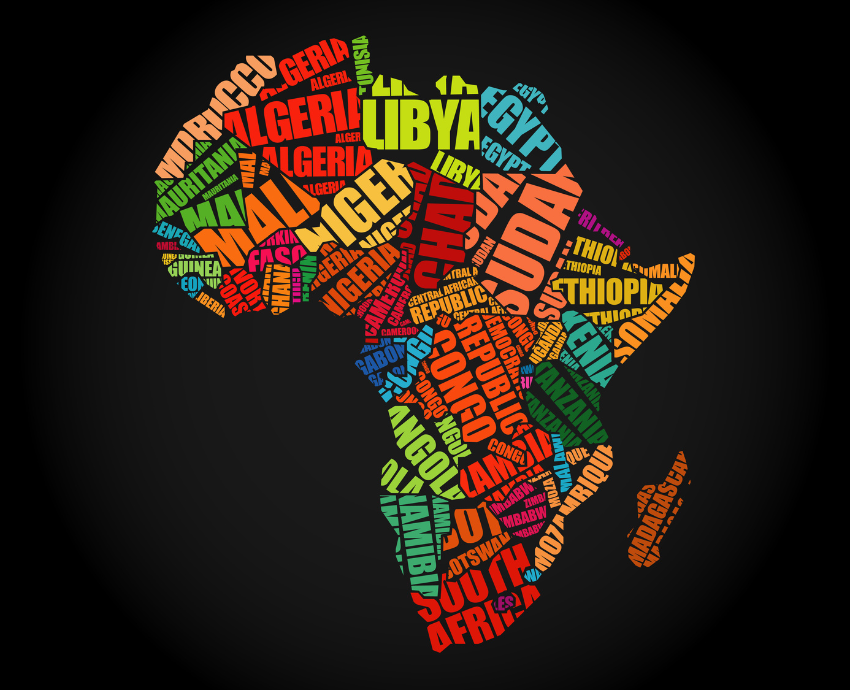
The four-month-long United States-backed Israeli military operation in the Gaza Strip, which comprises a “plausible” genocide perpetrated upon 2.3 million Palestinians, is threatening, due to its open flouting of international law, the foundations of the post-World War II global order.
South Africa sought the genocide ruling against Israel at the International Court of Justice, and, while Western allies supported Tel Aviv, the Global South lined up behind Cape Town.
Another flashpoint where Western hegemony is increasingly challenged is in Africa’s Sahel — the semi-arid strip south of the Sahara, stretching from Senegal to Sudan — as recent military coups have overthrown French-dominated regimes.
Six Sahelian nations have changed regimes in recent years. Three of them— Mali, Burkina Faso and Niger — have since expelled French troops, stationed there for a decade on the pretext of assisting with countering terrorist groups.
This anti-West sentiment is also accompanied by growing relations with Russian entities.
Mali, Burkina Faso and Niger further announced on January 28, their departure from the Economic Community of West African States (ECOWAS), marking an ongoing fresh decolonisation process in a region with significant US presence.
Unshackling from imperialism
Established in 1975, ECOWAS is a union of 15 nations of the western Sahel. Following the decolonisation period of the mid-20th century, the free trade and movement agreement served as a stabilising force.
The bloc, which has the support of the US and France, threatened to militarily intervene in Niger last year after its July 26 coup. ECOWAS called on Niger to restore its previous government or face reproach. Yet, these threats remained words only.
Headquartered in Nigeria’s Abuja, ECOWAS suspended Mali and Burkina Faso following their respective coups and imposed harsh sanctions on Mali and Niger. It has framed the coups as antidemocratic despite them having grassroots support.
The leaders of Mali, Burkina Faso and Niger signed a security pact, the Alliance of Sahel States, last September, which obligates them to support each other against any external or internal threats. These countries are struggling with insurgents who fled south after the 2011 destruction of Libya.
The alliance is severing ties at a time when ECOWAS is pressing the three nations to return to constitutional governance. Mali, Burkina Faso and Niger charge ECOWAS with being dominated by Western powers.
Popular revolt
The Malian military turned against its government in August 2020, when a military faction led by Assimi Goïta overthrew President Ibrahim Boubacar Keïta’s government. In the lead up to the coup, large protests took place in the capital, Bamako, demanding Keita’s resignation over the government’s failures and corruption.
Goïta then unseated military replacement president Bah N’daw to claim the position of interim president in May 2021.
The overthrow of president Ali Bongo in Gabon last August, brought an end to his family’s 56-year-long hold on the West African nation.
In many ways, the Bongo regime symbolised all that is wrong with the neocolonial structures that continue to benefit a few in post-decolonisation Africa.
The Bongos maintained ties with France in regard to its extractive industries in Gabon, with the French pocketing most of the profits from these ventures. While the Gabonese regime change does have popular support, there are questions about the motivations of coup leaders.
Burkina Faso underwent two military coups in 2022. The first in January saw the military oust Roch Kaboré’s government and establish its own rule. This new administration was overthrown by Captain Ibrahim Traoré in September, as it couldn’t deal with an internal Islamic insurgency.
Traoré, who became the world’s youngest leader at 34, has come to symbolise the struggle of West African nations now attempting to throw off the neocolonial shackles that continue to see them subjected to the domination of imperial powers.
The last of the nations rejecting their neocolonial fetters was French-dominated Niger. The military overthrew the Mohamed Bazoum government on July 26 last year. Led by former army chief Abdourahamane Tchiani, a military junta now rules Niger, and is administering a three-year transition.
Niger’s coup brought global focus to the instabilities in the region, as it is home to a key US base. It also supplies 5% of the global trade of uranium — raising further concerns in the West.
ECOWAS warned Niger that it would intervene militarily to restore Bazoum to power. However, Mali and Burkina Faso issued a joint statement, outlining that if the coalition were to interfere, it would be tantamount to a declaration of war.
Cutting neocolonial ties
The three former French colonies making up the countries of the Alliance of Sahel States have turned to Russia for security assistance, which comprises troops from the mercenary Wagner Group. Niger called on them for assistance when ECOWAS was threatening to take military action against it.
Expelling the French military presence from Niger was an early demand of coup leaders, and the last troops exited in December.
French military personnel were withdrawn from Mali in February 2022, while Traoré ensured that French troops were out of Burkina Faso 12 months later.
Since its formation, ECOWAS has sought to ensure that the neocolonial status quo was maintained in the region, which is known as the “coup belt”.
The Alliance of Sahel Sates accounts for close to half the landmass covered by the ECOWAS bloc. With the French expelled and Russians paramilitaries now operating in the region, France no longer has the grip on resources it once did and US dominance in the region is also challenged.
Against the backdrop of efforts by the West and Israel to undermine the post World War II global order, the people’s revolt in West Africa takes on global significance.